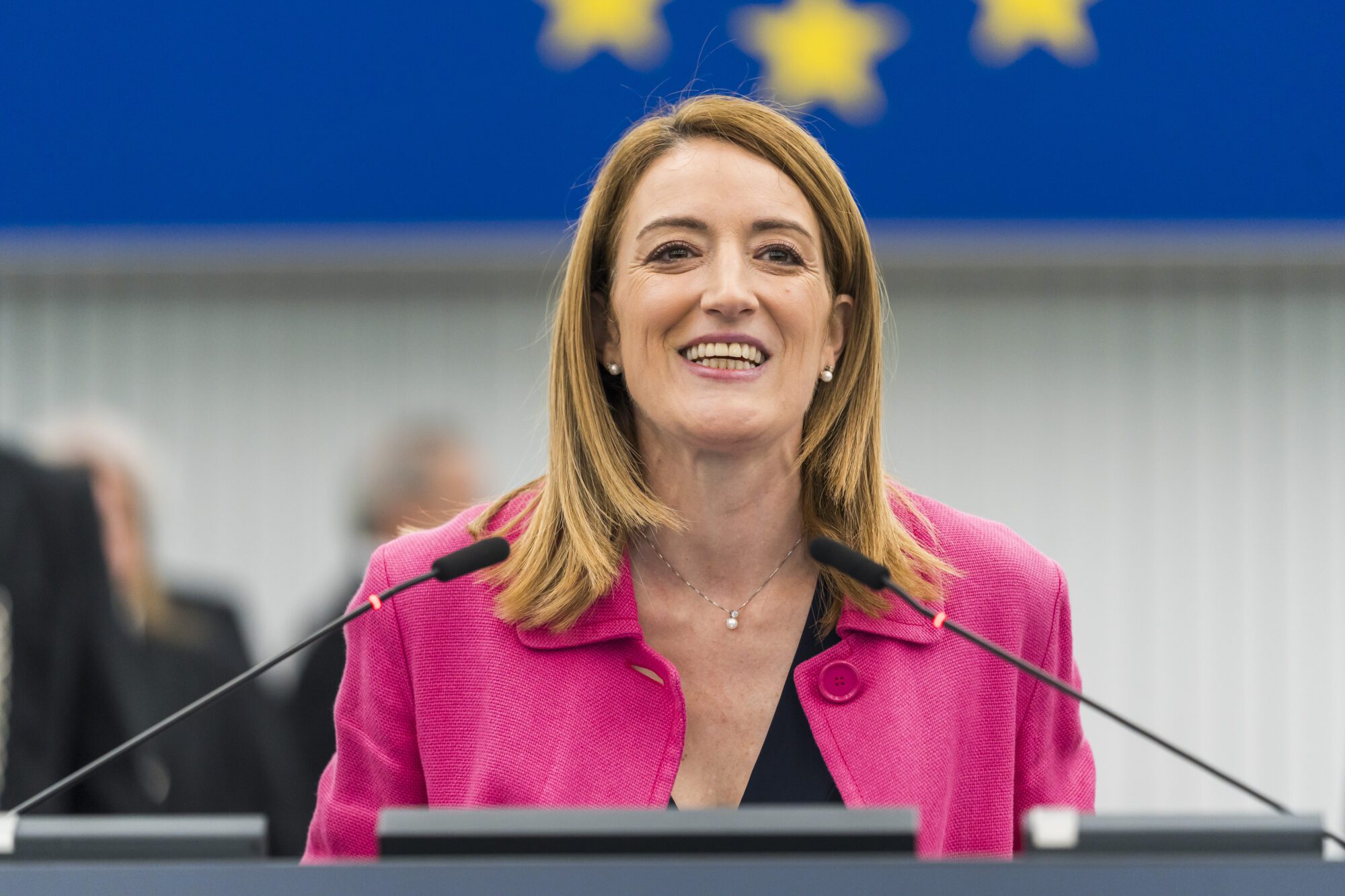
Photo: Daina Le Lardic © European Union 2024 – Source : EP
“The majority of the European Parliament is more concerned with protecting Ursula von der Leyen than doing its job, which is to answer to the people whom it represents,” Christine Anderson, MEP for the German anti-globalist Alternative für Deutschland (AfD) party, told The European Conservative after being stopped from talking about the Pfizergate corruption scandal involving Commission President Ursula von der Leyen.
Anderson submitted a motion to include the controversial vaccine deals on the parliamentary agenda—an initiative that was quickly rejected by the left-liberal majority. While making her case for her request to be accepted, Anderson said: “We in Parliament must show von der Leyen the red card, at the latest now that the public prosecutor’s office is investigating her for corruption. It is bad enough that the president of the Commission is corrupt but a parliament that covers up this corruption is just as corrupt.” At this point, Parliament President Roberta Metsola abruptly switched off Christine Anderson’s microphone, to the joy and laughter of many MEPs.
“It is quite remarkable that the majority of the EU Parliament is clearly lacking any kind of responsibility or motivation in terms of getting to the bottom of things,” Anderson said.
🇨🇦 🇺🇸 🇬🇧 🇦🇺
— Christine Anderson (@AndersonAfDMdEP) April 23, 2024
Scandal in the EU Parliament. I requested a short-term change to the agenda to clarify the vaccine deals between the EU Commission and Big Pharma.
⚠️ When I say these 3 words:
➡️ Von der Leyen
➡️ Pfizer
➡️ Corruption
🎤 The President of Parliament immediately cuts… pic.twitter.com/CzGC0XTI0H
Following the bizarre scenes, including having her microphone disconnected, Anderson told The European Conservative:
It hasn’t happened to me before. I accused Ursula von der Leyen of being corrupt, which I have good reasons for doing, and Roberta Metsola just shut off my microphone at that point. It just goes to show where their priorities lie. It’s an outrage to kill someone’s microphone just because you don’t like what you’re hearing. It is chilling indeed.
Pfizergate has been haunting von der Leyen for almost three years. The Commission president has been accused of ordering unnecessarily large amounts of COVID-19 vaccines from Pfizer, using taxpayer’s money (€1.8 billion) and negotiating the price with the company’s CEO—and her husband’s business partner—via text messages; (i.e. in almost the least transparent way possible).
Two separate lawsuits have been launched against the European Commission. One by The New York Times, aimed at obtaining the text messages between von der Leyen and Albert Bourla, the Pfizer CEO, with the newspaper questioning how the company obtained the contract at the expense of rival AstraZeneca. The other lawsuit was brought by a Belgian lobbyist who seeks to remove the president’s immunity.
The case was brought before the European Ombudsman in September 2021 and was closed in July 2022, with the legal watchdog officially declaring “maladministration” on the Commission’s part and repeatedly calling for a renewed search and release of the texts. The European Commission says it has “no record” of the texts, as these messages are often “short-lived,” are not subject to record-keeping requirements, and have been deleted since. An investigation was recently launched into the purchase of COVID vaccines by the European Public Prosecutor’s Office. Nobody has yet been charged in connection with the case.
Ursula von der Leyen has been keen to avoid any mention of the scandal as she seeks reelection as Commission president this year. The mainstream parties in the European Parliament that form a majority, and have been backing the Commission in the past five years, are also seemingly wary of the affair gaining attention before the EP elections in June.
